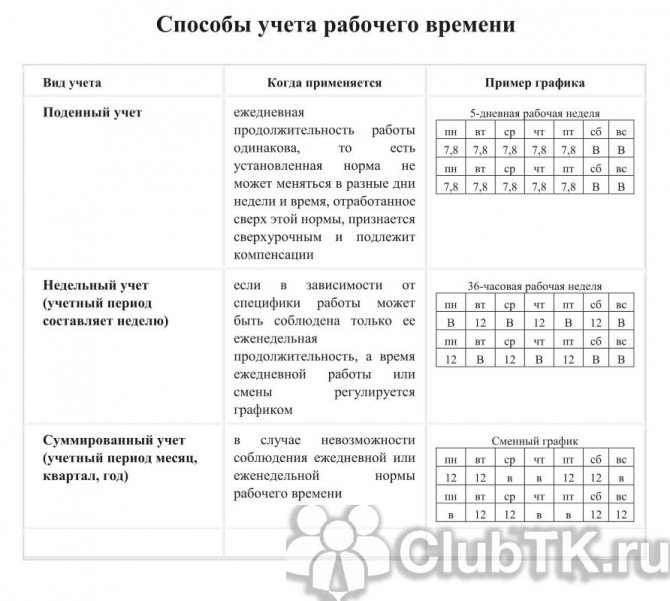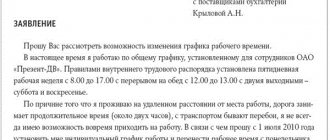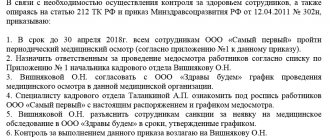Working time concept
What is working time is determined by Art. 91 Labor Code of the Russian Federation. This is the time when a medical worker performs official duties and obeys labor regulations. It includes:
- being on business trips;
- lunch break for health workers at the workplace (Article 108 of the Labor Code of the Russian Federation);
- downtime (Article 157 of the Labor Code of the Russian Federation);
- special breaks during the shift (Article 109 of the Labor Code of the Russian Federation);
- breaks for feeding the child (Article 258, Article 264 of the Labor Code of the Russian Federation).
IMPORTANT!
The coronavirus pandemic forced the authorities to introduce a regime of self-isolation and approve non-working days with pay from 30.03 to 11.05, inclusive. But such decisions will not affect how doctors work from May 1 to May 11, since they do not apply to medical organizations, as stated directly in the presidential decrees. So if we talk about whether doctors are working next week, then employees of public clinics will have to work on the 6th, 7th and 8th, and private clinics will have to work according to the schedule approved by management.
In accordance with the Federal Law of November 21, 2011 No. 323-FZ “On the fundamentals of protecting the health of citizens in the Russian Federation,” a medical worker is a specialist who meets the following conditions:
- has a medical or other professional education;
- works in a medical institution;
- his professional duties are to carry out medical activities;
- has a certificate of accreditation or a specialist certificate.
The categories of health workers are established by the appendix to the order of the Ministry of Health of Russia dated December 20, 2012 No. 1183n.
Working hours: regular, shift
Depending on the specific activities of a medical organization, doctors and nurses can work in different modes. The most common are the following:
- Five-day work week with two days off.
- Shift work schedule.
- Irregular working hours.
- Home duty.
Let's take a closer look at the features of these modes.
Five-day work week.
This mode is convenient and optimal for health workers in clinics, antenatal clinics, family planning centers and other health care institutions that provide outpatient and routine medical care.
The duration of daily work during a five-day work week is determined by dividing the weekly norm by the number of working days (see order of the Ministry of Health and Social Development of the Russian Federation dated August 13, 2009 No. 588n). For example, with a weekly norm of 36 hours, the daily norm is 7.2 hours; with a weekly norm of 24 hours, the daily norm is 4.8 hours, etc.
The length of the working day or shift immediately preceding a non-working holiday is reduced by one hour.
The employment contract and internal labor regulations may also provide for an increase in the duration of a health worker’s daily work, but in any case, the weekly norm must be met (39 hours or less). At the same time, it must be taken into account that if, according to the results of a special assessment of working conditions, the activity of a health worker is classified as harmful or dangerous working conditions, then daily work should not last more than 8 hours in a 36-hour week; 6 hours – for a 30-hour week or less. A collective agreement or industry agreement, or an additional agreement to the contract, with the consent of the employee, may provide for an increase in daily work to 12 and 8 hours, respectively (Article 94 of the Labor Code of the Russian Federation).
Shift work schedule.
The work of health workers in shifts is practiced in medical organizations of continuous service (hospitals, emergency departments, emergency rooms, etc.), that is, where medical care is required constantly and around the clock.
In this case, the chief physician of the medical organization approves the shift schedule, which is drawn up taking into account the opinion of the elected body of the primary trade union organization and is brought to the attention of employees against signature. It is possible to introduce 2, 3 or 4 shifts during the day (Article 103 of the Labor Code of the Russian Federation).
The form of the shift schedule is not established by law, so it is drawn up by management in free form. It must stipulate the beginning and end of the shift, its duration, and rest time between shifts.
The shift schedule should be drawn up taking into account the following points:
- the length of the working week should not exceed the norm (39 hours or less); with summarized accounting, you need to comply with the norm for the accounting period (month, quarter, year);
- the duration of rest between shifts must be no less than a double shift, and weekly continuous rest must be at least 42 hours (Article 110 of the Labor Code of the Russian Federation).
Irregular working hours.
Medical workers may be hired or transferred to work with irregular working hours. This is a special mode of work when individual employees can, by order of the employer, if necessary, occasionally (not systematically) be involved in the performance of their labor functions outside the working hours established for them (Article 101 of the Labor Code of the Russian Federation).
Based on this definition, we can conclude that health workers are quite capable of working under irregular working hours, despite the reduced working hours. This is especially beneficial for medical organizations: the employee’s separate consent to be hired for work is not required each time, and there is no need to pay for additional work beyond the schedule.
The list of positions with irregular working hours must be approved in a local regulatory act or in a collective agreement, and this condition must be specified in the employment contract with the employee. It is necessary to take into account the opinion of the trade union, if there is one.
The law defines categories of workers who are not allowed to work beyond the established working hours. For example, such employees include employees employed in jobs with harmful or dangerous working conditions, and pregnant women.
According to Art. 119 of the Labor Code of the Russian Federation, employees with irregular working hours are provided with annual additional paid leave, the duration of which is determined by a collective agreement or internal labor regulations and which cannot be less than three calendar days.
Home duty.
A specific form of employment for doctors is the so-called duty at home (Parts 4, 5, Article 350 of the Labor Code of the Russian Federation). It consists in the fact that the doctor is at home, but is not fully resting, but is waiting for a call from the patient and is ready to leave at any moment to provide emergency or urgent medical care.
Doctors can be involved in such duties only with their consent.
Recording of working time when on duty at home is carried out in accordance with the Regulations approved by Order of the Ministry of Health of Russia dated 04/02/2014 No. 148n (hereinafter referred to as the Regulations). According to Part 6 of Art. 350 of the Labor Code of the Russian Federation, clause 3 of the Regulation, when the employer takes into account working time, each hour of duty at home is taken into account as half an hour of work in a medical organization; travel time and time to provide assistance are like an hour of work. The total working hours must remain reduced and not exceed the maximum for a given employee.
Call waiting time is considered working time and must be paid even if the call is not received. Failure to include call waiting time during working hours is a violation on the part of the employer (see, for example, the appeal ruling of the Krasnoyarsk Regional Court dated May 27, 2015 in case No. 33-5381/2015).
For work at home, the employer must introduce summarized recording of working time (clause 2 of the Regulations). To organize it, it is necessary to introduce appropriate provisions into the internal labor regulations and the employment contract with the employee, approve the duty schedule, familiarize health workers with it and take into account the opinion of the elected representative body, if any. With summarized accounting, it is possible not to observe the duration of working hours per day and week. The main thing is to comply with the general norm for the accounting period, which can range from 1 month to a year, and if the work is associated with harmful or dangerous conditions, then up to 3 months (Part 1 of Article 104 of the Labor Code of the Russian Federation).
Let's give an example. A doctor's working hours are 36 hours a week. At the same time, he must stay in the clinic for 26 hours and be on duty at home for 20 hours. Each hour of duty is counted as half an hour of working time (10 hours), therefore, in total, in a month, in the absence of calls, the doctor will work 26 + 10 = 36 hours. If a doctor was called to work twice in a month and spent a total of 6 hours traveling and assisting the patient, then the duration of duty will be 6+(20-6)/2=13 hours, and not 10. The employer must take this into account and reduce the number of hours on duty at home this month or the number of working hours in the clinic. Otherwise the normal working hours per week will be exceeded.
Regulatory acts of the constituent entities of the Russian Federation may provide for the specifics of remuneration for physicians while on duty at home. Thus, the Decree of the Government of the Moscow Region dated July 3, 2007 No. 483/23 “On remuneration of labor for employees of state healthcare institutions of the Moscow Region” established that if an employee is called to the institution, the time spent by him on providing medical care is paid based on the official salary (rate ) taking into account increases in connection with the performance of heavy work, work with harmful and (or) dangerous and other special working conditions for the hours actually worked, taking into account the moving time. Additional payment for night work is made only for the actual time spent on providing medical care, taking into account the travel time (clause 7.2 of the resolution).
What the legislation says about the working hours of health workers
The Labor Code establishes a reduced working time for health workers - no more than 39 hours per week (Article 350 of the Labor Code of the Russian Federation). But for individual specialists, federal legislation provides for a different limit of working hours per week, which depends on the specifics of the medical institution and the employee’s position.
The main document establishing how long nurses and doctors work is Government Resolution 101 on medical workers of the Russian Federation, which contains a list of positions and the duration of the labor process for each of them (from 24 to 36 hours per week). In addition to government regulations, when determining the length of the working week, one should focus on the norms of some federal laws.
| the federal law | Maximum number of hours per week | Specifics of activity |
| From 07/02/1992 No. 3185-1 | 36 | Psychiatric care |
| From 30.03.1995 No. 38-FZ | 36 | Risk of becoming infected with HIV while performing your official duties |
| From 07.11.2000 No. 136-FZ | 36 | Work with chemical weapons |
| From 18.06.2001 No. 77-FZ | 30 | Providing anti-tuberculosis care |
Duration of working hours when working part-time for medical workers
The Resolution of the Ministry of Labor of Russia dated June 30, 2003 No. 41 “On the peculiarities of part-time work for teaching, medical, pharmaceutical and cultural workers” stipulates that within a month, by agreement between the employee and the employer, the duration of work under each employment contract with a medical worker cannot exceed :
- For medical and pharmaceutical workers - half the monthly standard working time, calculated from the established length of the working week;
- For medical and pharmaceutical workers whose half of the monthly working time for their main job is less than 16 hours per week - 16 hours of work per week;
- For doctors and paramedical personnel in cities, districts and other municipalities where there is a shortage - a monthly standard of working time, calculated from the established length of the working week.
- For junior medical personnel - the monthly standard of working time, calculated from the established length of the working week.
According to Article 350 of the Labor Code of the Russian Federation, for medical workers of healthcare organizations living and working in rural areas and in urban settlements, the duration of part-time work may be increased by decision of the Government of the Russian Federation, adopted taking into account the opinion of the relevant all-Russian trade union and all-Russian association of employers. Today, there is a Decree of the Government of the Russian Federation dated November 12, 2002 No. 813, according to which the duration of part-time work in health care organizations for medical workers living and working in rural areas and urban settlements should be no more than 8 hours a day and 39 hours in week.
Working hours
So that the specialist knows how and how much to work, schedules are drawn up. To do this, determine the normal time for a specific period: the duration of the shift (norm) is multiplied by the number of days in the accounting period for a five-day period. To calculate the norm of days, the production calendar of health workers does not differ from the calendar that is used in other cases. The number of hours by which the working time on holidays is reduced is subtracted from the resulting number.
The mechanism for calculating the norm is determined by order of the Ministry of Health and Social Development of Russia dated August 13, 2009 No. 588n. For a normal shift duration, the number of hours per week (39, 36, 33, 30, 24) is divided into 5 days:
| Working week of a health worker, h | Shift duration, h |
| 24 | 4,8 |
| 30 | 6 |
| 33 | 6,6 |
| 36 | 7,2 |
| 39 | 7,8 |
Work on the day before the holiday is reduced by one hour. To determine the worked norm, the duration of the accounting period is used. Upon completion, possible processing is calculated. For example, the standard working time for health workers in 2020, if the accounting period is a 36-hour week, will be:
248 × 7.2 – 5 = 1780.6 hours,
Where:
- 248 - number of days in a five-day period;
- 7.2 - normal shift duration;
- 5 - the number of hours on pre-holiday days per year by which the time is reduced.
Shift work
Shift work - the activities of the institution are organized in several shifts, when one shift replaces another. In this mode, the shift schedule reflects:
- accounting period - a period of time (day, week, month, quarter, year) during which the employee works the standard time;
- shift duration;
- the procedure for transferring from one shift to another, the employee’s actions in case of no-show of a shift worker.

Read more: How to maintain work schedules for health workers in a clinic
Work schedule in the organization
How to create a shift schedule
Home duty
Home duty is a special mode when a specialist is at home and awaits a call to work. In this case, the daily routine of the health worker is regulated by Article 350 of the Labor Code of the Russian Federation and Order of the Ministry of Health of Russia dated April 2, 2014 No. 148n. The legal requirements for this mode are the same as for the usual time of performance of official duties. They are involved in such duties only with the consent of the employee, and the work regime itself is specified in the employment contract. Duties occur according to the approved shift schedule.
During home duty, each hour is counted as 30 minutes of core work. Travel time from home to the place of call and back, the period of being on call is counted as a regular labor hour.
Work on holidays
Due to the nature of their profession, doctors are not allowed to stop working on holidays. There are the following options for working on holidays:
- if according to the schedule the shift falls on a holiday, the person works as usual; the standard hours for health workers already include this time. But such work is paid at a higher rate;
- by order of the employer and with the written consent of the employee, they organize entry to the workplace to perform unforeseen work. Such activities take place outside working hours and are paid double or single with the provision of time off;
- exit is considered an emergency situation (Article 113 of the Labor Code of the Russian Federation), and the employee’s consent to work in most cases is not required. An exception is made for certain categories of workers (disabled people, women with children under 3 years old, etc.), but they are allowed to refuse to go out on holidays.
Regime during the epidemic season
During epidemics, a high-risk regime is introduced in medical institutions. The epidemic is considered an emergency situation, so the employer involves subordinates to work on days off or overtime without their consent (except for certain categories of employees). The employer is obliged to keep records of the time worked by each hired specialist and pay him at an increased rate.
Peculiarities of labor regulation of a medical worker: working hours
07.12.2015
The work activity of healthcare workers is associated with great physical and emotional stress, the need in some cases to work in difficult and dangerous conditions for life and health. This determines some of the features of the legal regulation of labor relations in this field of activity: additional requirements when concluding an employment contract, preferential working hours and rest periods, special rules for part-time work, etc. In addition to the general provisions of the Labor Code of the Russian Federation, medical workers are subject to the provisions of the Federal Law dated November 21, 2011 No. 323-FZ “On the fundamentals of protecting the health of citizens in the Russian Federation”, as well as a number of other by-laws and regulatory legal documents. The main document regulating the work of a medical worker is an employment contract concluded with the employer.
Working hours
The legislator has established special legal regulation of the work of medical workers, including by establishing for them a reduced working time (Part 5 of Article 92 and Part 1 of Article 350 of the Labor Code of the Russian Federation (hereinafter referred to as the Labor Code of the Russian Federation)), taking into account the provisions Art. 251 and 252 of the Labor Code of the Russian Federation, which provide for the possibility of establishing the specifics of legal regulation for certain categories of workers in connection with the nature and working conditions. These measures are aimed at compensating for this category of workers the adverse effects of various types of factors, increased psychophysical stress due to the specifics and nature of medical and other activities to protect public health, and, therefore, cannot be considered as violating the constitutional rights of citizens and the principle of equality enshrined in Art. 19 (parts 1 and 2) of the Constitution of the Russian Federation.
The stress of the labor process inherent in medical work has always been compensated for by medical workers by reduced working hours and the provision of annual additional paid leave. Therefore, for all medical workers, Art. 350 of the Labor Code of the Russian Federation establishes a reduced working time - no more than 39 hours per week. For certain categories of medical workers, depending on their position and (or) specialty, by Decree of the Government of the Russian Federation of February 14, 2003 No. 101 “On the working hours of medical workers depending on the position and (or) specialty they occupy” (hereinafter referred to as Resolution No. 101) in accordance with the Lists of Positions, the duration of working hours is established - 36, 33, 30 or 24 hours per week. For those job titles of medical workers that are not included in the specified Lists, the duration of working hours is regulated by Art. 350 Labor Code of the Russian Federation.
For your information
It should be noted that not all employees in a medical organization belong to the category of medical workers. For example, these are administrative and economic personnel, for whom the normal working hours are set at 40 hours. At the same time, it should be taken into account that the working hours of a particular employee are established in the employment contract on the basis of an industry agreement and a collective agreement based on the results of a special assessment of working conditions.
To determine those who belong to the category of “medical worker”, it is necessary to be guided by the norms of the Federal Law of November 21, 2011 No. 323-FZ “On the fundamentals of protecting the health of citizens in the Russian Federation” (hereinafter referred to as Law No. 323-FZ). According to Art. 2 of the law “a medical worker is an individual who has a medical or similar education, works in a medical organization and whose labor (official) responsibilities include the implementation of medical activities, or an individual who is an individual entrepreneur who directly carries out medical activities.”
Next, the question arises: what is medical activity? The answer also contains Art. 2 of Law No. 323-FZ: “medical activity is professional activity in providing medical care, conducting medical examinations, medical examinations and medical examinations, sanitary and anti-epidemic (preventive) measures and professional activity related to transplantation of organs and (or) tissues, circulation of donor blood and (or) its components for medical purposes.”
Order of the Ministry of Health of Russia dated July 25, 2011 No. 801n approved the Nomenclature of positions for medical and pharmaceutical personnel and specialists with higher and secondary vocational education in healthcare institutions, which contains both positions of employees to be filled by persons with higher (secondary) medical education, and positions of employees subject to replacement by persons with other higher (secondary) professional education. Thus, if an employee with a higher (secondary) non-medical professional education, in accordance with his labor (job) responsibilities established in the employment contract and job description, carries out medical activities in the sense given to this concept by Art. 2 of Law No. 323-FZ, he can be classified as a medical worker.
As for the heads of medical organizations and the heads of their structural divisions, if, in accordance with their labor (job) responsibilities established in the employment contract and job description, they carry out medical activities, they can also be classified as medical workers.
In accordance with clause 1 of Appendix 2 to Resolution No. 101, doctors of treatment and preventive organizations, institutions: clinics, outpatient clinics, dispensaries, medical stations, stations, departments, offices, when conducting exclusively outpatient visits to patients, have the right to a shortened 33-hour working week.
According to Art. 33 of Law No. 323-FZ, primary health care includes measures for the prevention, diagnosis, treatment of diseases and conditions, medical rehabilitation, monitoring the course of pregnancy, promoting a healthy lifestyle and sanitary and hygienic education of the population. Primary medical and specialized health care is provided by general practitioners, local physicians, pediatricians, local pediatricians and general practitioners (family doctors), medical specialists, including medical specialists from medical organizations providing specialized, including high-tech medical care. This type of medical care is provided on an outpatient basis and in a day hospital.
Thus, as part of the provision of primary health care, local physicians, surgeons, neurologists, otorhinolaryngologists, ophthalmologists and others, in addition to outpatient visits to patients, carry out preventive examinations, medical examinations, home care, sanitary education and other preventive work, therefore, they do not can only provide outpatient care and are not entitled to a reduced 33-hour work week.
In this regard, part of the working time of doctors within the framework of providing primary health care to the population, evenly by day of the week, is allocated to the specified types of work, based on the 39-hour duration of their working week.
A 33-hour work week may be established for a doctor-dental surgeon, a doctor-maxillofacial surgeon of medical and preventive organizations, institutions, if their job responsibilities do not provide for other work, namely: conducting classes to improve the qualifications of medical personnel, participating in medical examination, performing other sanitary and preventive work, organizing treatment at home. Dental surgeons and maxillofacial surgeons working in hospitals are required to work a 39-hour work week.
Summarized working time recording
In accordance with the current labor legislation, in organizations where, due to working conditions, the daily or weekly working hours established for this category of employees cannot be observed, it is possible to introduce summarized recording of working hours. The procedure for introducing summarized recording of working time is established by the internal labor regulations of the organization.
Medical organizations with hospitals provide medical care to the population regardless of the time of day or day of the week, therefore, the internal labor regulations establish for medical workers a summarized accounting of working hours or a shift work schedule for them to be on duty in the evening and at night, on Sundays and holidays days in accordance with the approved work schedule.
With accumulated working hours, the duration of working hours should not exceed the normal number of working hours for a specific accounting period of time. The normal number of working hours for the accounting period is determined based on the weekly working hours established for this category of medical workers. For employees working part-time (shift) or part-time, the normal number of working hours during the accounting period is reduced accordingly.
The use of summarized working time is based on the fact that the duration of the working week established by current legislation is provided by the schedule on average for the accounting period. The daily and weekly working hours established by the schedule may deviate to a certain extent from the established standard working hours. In this case, any deficiencies (overwork) that appear must be corrected within the established accounting period (month, quarter, etc.). The number of working hours according to the schedule must be equal to the number of working hours according to the established norm for this period. The accounting period cannot exceed one year, and for the working time of workers engaged in work with harmful and (or) dangerous working conditions - three months (Part 1 of Article 104 of the Labor Code of the Russian Federation).
Organization of shift work
Article 91 of the Labor Code of the Russian Federation obliges the employer to keep records of the time actually worked by each employee. In relation to medical organizations, the employer (chief physician) or a person authorized by him is obliged to maintain work schedules for medical workers.
In medical organizations with hospitals, workers alternate shifts evenly and, as a rule, the transition from one shift to another is carried out every week at the hours determined by the shift schedule. As for workers in outpatient medical organizations, they move from shift to shift every other day.
The rational organization of outpatient care to the population largely depends on correctly drawn up schedules, which are an integral part of the work plan of the clinic and its structural divisions. They regulate the start and end times of daily work, the number and duration of work shifts, their rotation and the calendar of days off for medical personnel. Schedules are drawn up for a certain accounting period for structural units, groups of personnel (medical, nursing, junior, etc.) and for each occupied position (main, part-time and substitute, part-time) separately.
The duration of the shift (duration of work during the day) on different days of the week may deviate from the established duration of the working day, but the sum of the duration of all shifts for the month must necessarily correspond to the monthly balance of working hours. The duration of one shift should not exceed 12 hours. The duration of the break between shifts cannot be less than double the duration of the work shift. The number of days off per month for each employee must correspond to the number of days off provided by the calendar. The schedules must reflect the recorded types of work performed by the doctor: appointments at the clinic, including dispensary visits, home visits, and other preventive work.
Shift schedules are brought to the attention of the employee. As a rule, no later than one month before it comes into effect.
The time for changing clothes before the start and after the end of the working day (shift) is not included in the recording of working time.
Breaks for rest and food
In accordance with Art. 108 of the Labor Code of the Russian Federation, during the working day (shift), a medical worker must be given a break for rest and food lasting no more than two hours and no less than 30 minutes, which is not included in working hours. However, in those jobs where, due to working conditions, it is impossible to provide a break for rest and food, the employer is obliged to provide the employee with the opportunity to rest and eat during working hours. The list of such work, as well as places for rest and eating, are established by the internal labor regulations. This standard also applies to medical workers who have a 6.5-hour or shorter working day.
Example
For medical workers working at emergency medical care stations (departments), where it is impossible to establish an exact time for meals and rest, the internal labor regulations establish an approximate time, for example, from 13.00 to 16.00. A similar approach is used in the internal labor regulations for ambulance drivers.
Duration of work on the eve of non-working holidays
According to Art. 95 of the Labor Code of the Russian Federation, the duration of the working day or shift immediately preceding a non-working holiday is reduced by one hour both for workers with normal working hours and for those who work on reduced working hours (including this applies to medical workers ), regardless of the basis of its abbreviation. However, it should be remembered that the duration of work at night (including for medical workers who have reduced working hours) is equal to the duration of work during the day (i.e., the duration of work (shift) at night by one hour is not reduced) in cases where this is necessary due to working conditions, as well as during shift work with a six-day work week with one day off. The list of these works may be determined by a collective agreement or local regulations.
If a non-working holiday follows a day off, then the working day preceding this day off is not subject to reduction. If a week falls on a holiday, the working hours for that week are adjusted accordingly. This rule applies to both a five-day and a six-day work week.
The main form of compensation for overtime on a pre-holiday day in continuously operating organizations and in certain types of work where it is impossible to reduce the duration of work (shift) is to provide the employee with additional rest time. Compensation for such overtime should be provided for in the shift schedule. If in an organization this issue is not regulated by a shift schedule or a collective agreement, then additional rest time is provided by agreement of the parties. Replacing overtime with payment according to the standards established for overtime work is allowed only with the consent of the employee.
Duty of medical workers, including at home
The labor function of being on duty for medical workers, performed outside of normal working hours, is similar to the labor function of being on duty for medical workers, performed according to a schedule.
In accordance with the norms of the Labor Code of the Russian Federation, the employee’s labor function must be defined in the employment contract. Any work that is in addition to it must also be reflected in the employment contract. Based on this principle, we can come to the conclusion that additional types of work specified, in particular, in subparagraph “g” of paragraph 2 of Resolution of the Ministry of Labor of Russia dated August 30, 2003 No. 41, can be formalized either as a combination of professions (positions), or as part-time work, for example, internal, if there are positions in the staffing table of a medical organization.
As mentioned above, the duty of medical workers is specific work and, of course, must be formalized within the framework of an employment contract. In this case, wages for duty should also be included in the average earnings of medical workers.
However, it must be borne in mind that in accordance with the Labor Code of the Russian Federation, any additional work or type of work is carried out only with the consent of the employee himself. For example, the question is often asked about the eligibility of attracting doctors from outpatient departments of hospitals, dispensaries, maternity hospitals, etc. to duty in hospitals. Such duty is possible only with the personal consent of the employee himself and if such functions are written down in the proper responsibilities of the medical worker.
As for the involvement of medical workers working in hospitals on hospital duty, such functions must also be taken into account in the employee’s job responsibilities.
The head of a medical organization can, within the limits of his authority, approve the workload for an employee.
In 2013 in Art. 350 of the Labor Code of the Russian Federation, changes were made that establish that in order to implement the program of state guarantees of free provision of medical care to citizens in an emergency or emergency form, medical workers of medical organizations, with their consent, can be assigned to duty at home.
Medical workers were involved in this type of activity before, but the corresponding norm was abolished in 2008, since it contradicted the current labor legislation, and until 2013, there was no legal definition of the concept of home duty in the legislation.
But no one canceled the specifics of the activities of medical workers, and the medical organization was obliged to provide emergency medical care to citizens and ensure the uninterrupted operation of the organization on weekends and non-working holidays, at night, including emergency response, etc. Therefore, in 2011, the order of the Chairman of the Government of the Russian Federation to the Ministry of Health and Social Development of the Russian Federation to develop a draft federal law on amendments to the Labor Code of the Russian Federation, which establishes the specifics of the work of doctors and nursing staff when they are on duty at home.
In Art. 350 of the Labor Code of the Russian Federation defines duty at home - this is the stay of a medical worker of a medical organization at home while awaiting a call to work (to provide medical care in an emergency or emergency form).
In addition, it is established that when taking into account the time actually worked by a medical worker of a medical organization, the time spent on duty at home is taken into account in the amount of 1/2 hour of working time for each hour of duty at home. The total working time of a medical worker of a medical organization, taking into account the time on duty at home, should not exceed the standard working time of a medical worker of a medical organization for the corresponding period. Particular attention should be paid to the fact that duty duties are introduced only with the consent of the employee.
Features of the working time regime and recording of working time when medical workers of medical organizations carry out duty at home are established by the order of the Ministry of Health of Russia dated 04/02/2014 No. 148n “On approval of the Regulations on the peculiarities of the working time regime and recording of working time when medical workers of medical organizations carry out duty at home” .
For medical workers on duty at home, the internal labor regulations establish a summarized recording of working time.
The start and end times of duty at home are determined by the work schedule approved by the employer, taking into account the opinion of the representative body of employees.
In the case of a call to work for a medical worker on duty at home, the time spent on providing medical care and the time the medical worker travels from home to the place of work (place of emergency medical care) and back is taken into account in the amount of an hour of working time for each hour of medical care and travel of a medical worker from home to the place of work (place of emergency medical care) and back. At the same time, the time of duty at home in the accounting period is adjusted so that the total working time of a medical worker of a medical organization, taking into account the time of duty at home, taken into account in the amount of one second hour of working time for each hour of duty at home, does not exceed the standard working time of a medical employee of a medical organization for the corresponding period.
The procedure for recording the travel time of a medical worker from home to the place of work (place of emergency medical care) and back is established by local regulations in agreement with the representative body of workers.
The employer is obliged to keep records of the time an employee stays at home while waiting for a call to work, the time spent providing medical care, and the time a medical worker travels from home to the place of work (place of emergency medical care) and back in the event of a call. to work while on duty at home.
Example
The doctor has a reduced working time of 39 hours per week. The medical organization has established a work schedule for him, providing for the provision of medical care at the workplace for 29 hours a week and duty at home (the doctor must be ready to be called to the workplace) for 20 hours a week. In total, working hours will be 49 hours per week. In this case, 20 hours of time spent on duty at home is taken into account by the doctor as half an hour for each hour of duty (including duty at night), i.e. the duration of the recorded working time in total will be the same 39 hours as during normal operation. If, while on duty at home, the doctor is called to work for 3 hours, then the remaining time on duty at home is reduced by 6 hours, so that the total is 39 hours.
For six months, the Trade Union of Healthcare Workers of the Russian Federation took an active part in the working group of the State Duma Committees on Labor, Social Policy and Disabled Persons, and Health Protection in the preparation of the draft law. The trade union proposed that medical workers, with their consent, be on duty at home beyond the working hours established for a particular employee, and the duration of this duty should not exceed the monthly standard of working time for the accounting period established for the employee. In addition, the Trade Union proposed, in the event that a medical worker on duty at home is called to work, the time spent on providing medical care and the travel time from home to the place of work and back, be paid in the amount of at least double the salary (official salary) , calculated per hour of work, taking into account all established monthly allowances and surcharges. However, the Trade Union's proposals did not find support among the deputy corps and representatives of the ministries of health and finance of the Russian Federation.
After amendments were made to Art. 350 of the Labor Code of the Russian Federation, medical workers, with their consent, may be assigned to duty at home in the form of staying at home while awaiting a call to work (to provide medical care in an emergency or urgent manner) within the normal working hours.
What has the application of Art. norms led to in practice? 350 of the Code?
When taking into account the time actually worked by a medical worker, the time spent on duty at home is taken into account in the amount of 1/2 hour of working time for each hour of duty at home. As a result, medical workers in this situation actually work extended working hours, which is contrary to labor legislation regarding compliance with working hours.
These circumstances entail the reluctance of workers to be on duty, thereby increasing the tension of the psychological climate in teams; medical workers refuse to be on duty within normal working hours.
In order to generalize the current practice of implementing Art. 350 of the Labor Code of the Russian Federation regarding the implementation of duty at home by medical workers, the Central Committee of the Trade Union monitored the registration and payment of these duties.
The monitoring results showed that due to insufficient medical personnel (as well as a lack of staff positions), it is quite problematic to carry out duty at home within the established working hours, as provided for by law, and in some cases it is impossible (this was indicated by 20 regional organizations of the Trade Union). At the same time, the practice of registering and paying for duty at home is not uniform.
The existing system of duty at home within the limits of normal working hours is actually voluntary-compulsory in nature, and if there are only one or two specialists, it turns into round-the-clock duty. In most cases, home duty is carried out outside normal working hours, and payment is made either as overtime, or as part-time work, or in the form of compensation payments. At the same time, the heads of medical organizations are placed within the strict framework of Art. 99 of the Labor Code of the Russian Federation, which provides for restrictions on attracting workers to overtime work - 120 hours. In practice, the time of work carried out in the form of duty at home significantly exceeds this norm.
In this regard, the Central Committee of the Trade Union again addressed the Committee on Health Protection of the State Duma of the Federal Assembly of the Russian Federation with a proposal to return to the discussion of the issue of implementing Art. 350 of the Labor Code of the Russian Federation regarding the implementation by medical workers of duty at home.
Time tracking
The employer ensures that the actual time worked by each employee is recorded (Article 91 of the Labor Code of the Russian Federation). To do this, use a time sheet for health workers, where they enter the hours of work:
- actual;
- in conditions other than normal (harmful);
- at night time;
- overtime;
- on holidays and weekends.
Based on the report card data at the end of the accounting period, the number of hours worked overtime is determined.

Recording working hours when on duty at home
In order to implement the program of state guarantees of free provision of medical care to citizens in an emergency or emergency form, medical workers of medical organizations, with their consent, can be established on duty at home (duty at home - a medical worker of a medical organization stays at home while waiting for a call to work (to provide medical care in emergency or urgent form)).
When taking into account the time actually worked by a medical worker of a medical organization, the time spent on duty at home is taken into account in the amount of one-half of an hour of working time for each hour of duty at home. The total working time of a medical worker of a medical organization, taking into account the time on duty at home, should not exceed the standard working time of a medical worker of a medical organization for the corresponding period.
Features of the working time regime and recording of working time when medical workers of medical organizations perform duty at home are established by Order of the Ministry of Health of Russia dated April 2, 2014 No. 148n.








